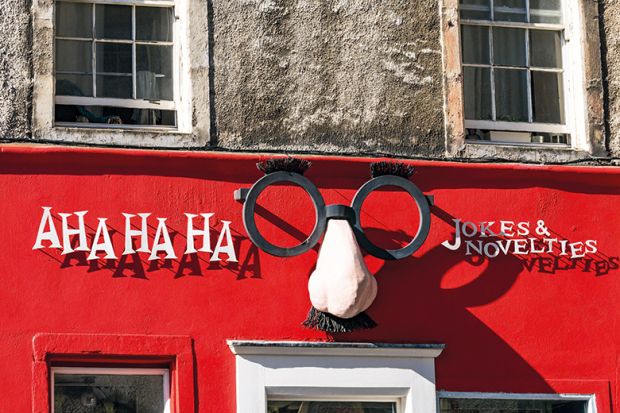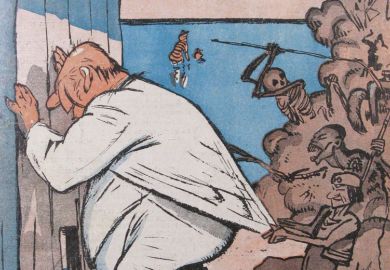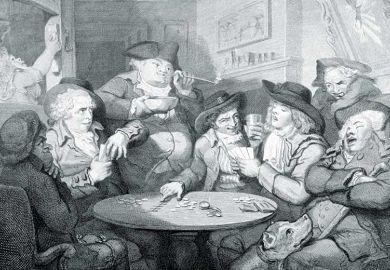“A good many studies of humour”, Terry Eagleton observes, “begin with the shamefaced acknowledgment that to analyse a joke is to kill it dead.” He robustly rejects this view: a joke is no more ruined by analysis than a poem. He nonetheless often seems strangely reluctant to examine specific pieces of wit very closely as he moves through theories of laughter and free-wheeling speculations on the relation of humour to history and to politics.
An account of a joke in which Bill Clinton and the Pope die on the same day, for example, is cited merely as an instance of blasphemy and so, in Freudian terms, a lifting of repression. Clinton is (rather meanly) consigned to hell and the Pope to heaven, but a bureaucratic error reverses their destinations. The next day, the error is corrected, and the two men converse briefly mid-journey, “the Pope remarking on how eager he was to see the Virgin Mary, and Clinton informing him that he was just ten minutes too late”.
The play of wit here could be interpreted with reference to Mary Douglas’ argument (in an essay cited elsewhere in the book) that a joke “brings into relation disparate elements in such a way that one accepted pattern is challenged by another which in some way was hidden in the first”. (This view is strongly supported by a punning dialogue that Eagleton includes: “‘Would you like a bridal suite?’ a young man asks his bride-to-be while planning their honeymoon, to which she replies, ‘No thanks, I’ll just hang on to your ears.’”) In its implicit opposition between eternity and Clinton’s casual “ten minutes”, the Pope-meets-Clinton narrative also prompts thoughts of Coleridge’s location of humour in “the comparison of finite things with those which our imaginations cannot bound”. Either of these points of reference might have made the joke worth discussing further in the chapter on “Incongruities” – which is, however, lively and full of unexpected scholarly snippets; it treats the problematic elasticity of the incongruity theory of humour as an opportunity to range over diverse variants of it, culminating in William Hazlitt’s “unexpected loosening or relaxing of… stress” at abrupt transitions that take the mind unawares.
The chapter on “Scoffers and Mockers” has an odder focus: as Eagleton notes, Thomas Hobbes’ view that we laugh to feel superior excludes playful or “delightfully nonsensical” concepts of humour. In response, he comes close to Georges Bataille’s view that, in laughing at the loss of “sufficiency” on the part of a “serious character”, we also lose our own sufficiency and seriousness, and feel a consequent relief. A joking anecdote, here, features a protagonist whose very haplessness invites sympathy: an obscure vicar receives a letter asking him to give a radio talk, and specifying the fee as five pounds, at which he writes back “to say that he would be delighted to deliver such a talk, and that he was enclosing his five pounds”.
Humour, then, is an enjoyable ramble, at its most engaging when drawn to the more anarchic aspects of laughter, citing Jacques Lacan’s claim that the value of a joke lies in the “possibility to play on the fundamental non-sense of all usages of sense”.
Chloe Chard is an independent scholar who is writing a book on laughter, travel and art.
Humour
By Terry Eagleton
Yale University Press
192pp, £16.99
ISBN 9780300243147
Published 9 April 2019
Register to continue
Why register?
- Registration is free and only takes a moment
- Once registered, you can read 3 articles a month
- Sign up for our newsletter
Subscribe
Or subscribe for unlimited access to:
- Unlimited access to news, views, insights & reviews
- Digital editions
- Digital access to THE’s university and college rankings analysis
Already registered or a current subscriber?






